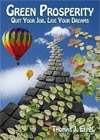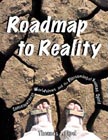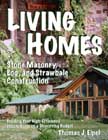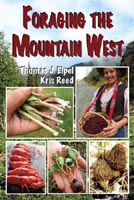 |
|
As an instructor of primitive wilderness survival skills, I meet all kinds of people who seek to rediscover the ways of our ancestors. I have noticed that many and perhaps most of these individuals are driven by a great thirst--almost a desperation--for freedom. |
Quest for Freedom
-The Stone Age Experience is the Journey, Not the Destination-
By Thomas J. Elpel. Edited by Jeff Blend.
As an instructor of ancient skills and wilderness survival, I meet all kinds of people who seek to rediscover the ways of our ancestors. Many of these individuals are driven by a great thirst--almost a desperation--for freedom. They often feel they are held in bondage, trapped by the machine of civilization, stuck in jobs they don't want, paying meaningless bills while unable to get ahead, and forced to be accomplices to the destruction of the natural world. They feel as if civilization has them locked in chains and stuck in a box, against which they rattle and wail in desperation to get free. They are part of a counter-culture of people who see civilization as a dead end.
Many of these souls have been inspired by the writings of Daniel Quinn who convincingly demonstrates in his book Ishmael that the transition from tribal hunter-gatherer societies to agriculture-based civilizations led to hierarchal systems of exploitation that are so deeply rooted in our culture that it would be impossible to ever create a free or sustainable society, because "civilization itself is the problem." Quinn doesn't advocate ending civilization, but many readers come away from the book with that message. Many have also been inspired by author Derrick Jensen, who takes it a step farther, connecting agriculture with our cultural need for control. Jensen effectively demonstrates that the rape of people and nature is a cultural phenomenon. Although I've enjoyed their writings myself, both authors leave their readers convinced that civilization as we know it has to end, but neither offers a viable alternative to replace it.
I meet their audience as individuals who foresee the ultimate crash of civilization and a coming time when people will be forced to return to the Stone Age or die. They want to break free from the chains of civilization to live as our ancestors did in supposed harmony with nature.
Culture of Boxes
The feeling of being trapped that I have seen in so many people was puzzling to me, because I could not see anything keeping them from being totally free--except their own perceptions of the world. But, through our internship program here Green University® LLC, I've had the opportunity to spend a great deal of time with a few such individuals--and a chance to see the world through their eyes. On one primitive outing, I watched John from the city lie down on a rock and drink straight from a mountain lake, and it was like watching him taste freedom for the first time in his life. On that trip in the mountains of Montana, we were in 100,000 acres of unspoiled land without visible property lines or boundaries. We could walk where we wanted to, camp where we wanted to, drink from the streams, and eat wild edible plants--free for the picking. John had never experienced that kind of freedom in the city before, where everything had to be purchased, and a person had to jump through hoops to get the credentials to get a good job to get ahead. It was then that I realized I had been totally free all of my life and never thought twice about it. Let me explain.
 |
|
I never considered the conventional route of going to college to get a degree so that I could get a job and work until I died. |
I remember being shocked when my computer science teacher in high school suggested that we all needed to work hard to get good grades so we could get into a good college so we could work hard to get good grades to eventually get a good job. I wrote a note to the teacher about how I thought it didn't seem right to paint such a dismal picture of the future for all the students. What I didn't realize at the time was that most of my fellow students already accepted that as their fate, and apparently didn't seriously consider any alternatives. For me, going to college to get a good job so I could work until I died was a future I never even considered.
Instead, I walked 500 miles across Montana with my girlfriend from highschool. We then married, worked intermittently with troubled teenagers in wilderness therapy programs, bought land and built our own passive solar stone and log home without a mortgage. We didn't have much money or building skills, but we also did not have many bills since we lived in a tent while we were building. When the house was built, I concentrated on my writing career. Writing was challenging for me, but also something I was passionate about. I stared at the computer long enough to learn how to express myself, and eventually wrote six books. I started my own publishing company (HOPS Press, LLC) to get the books into print, and taught myself HTML computer language to market my books on the internet. We raised a family, founded a nonprofit organization to work on conservation and recreation issues on the local Jefferson River, and hatched Green University® LLC. It never occurred to me that we needed credentials to do any of it. My mother offered repeatedly to pay for a college education, but I saw no value to it.
 My intent here isn't to brag. I don't consider myself especially smart. In fact, I started my writing career largely to help organize confusing information into more digestible forms so that I could understand it. For example, botany seemed too confusing, so I decided to write a book called Botany in a Day, although I knew basically nothing about botany. The book is now used as a textbook in herbal schools, survival programs and universities nationwide. The point is simply that it never occurred to me that I couldn't do any of these things. I did not experience the cages or limitations that other people bump up against, where they say "I can't." or "This wouldn't be practical." I wouldn't call myself an out-of-the-box thinker, because boxes simply did not exist in my universe. I have only recently become aware that few other people experience this same feeling of limitless freedom.
My intent here isn't to brag. I don't consider myself especially smart. In fact, I started my writing career largely to help organize confusing information into more digestible forms so that I could understand it. For example, botany seemed too confusing, so I decided to write a book called Botany in a Day, although I knew basically nothing about botany. The book is now used as a textbook in herbal schools, survival programs and universities nationwide. The point is simply that it never occurred to me that I couldn't do any of these things. I did not experience the cages or limitations that other people bump up against, where they say "I can't." or "This wouldn't be practical." I wouldn't call myself an out-of-the-box thinker, because boxes simply did not exist in my universe. I have only recently become aware that few other people experience this same feeling of limitless freedom.
Looking back, I realize that I grew up in a world almost entirely without limitations or boundaries. When I was a child living in what would eventually become the Silicon Valley, we packed up every summer when school was out and traveled to Montana to be with my grandmother. She had no television, but we played in the creek behind her house and hiked constantly, exploring the surrounding hills and fields without any apparent boundaries. My father died when I was twelve and my family moved permanently to Montana, where I was surrounded by my mother and aunts and siblings who were all either artists or students. In my formative years in Montana, I didn't know anyone who had a job.
The fact that nobody around me had a job is reflective of our Montana heritage. The Montana Territory was largely settled by disgruntled southerners who left the Union after the Civil War to escape government repression. These were individualists who liked to do their own thing and didn't want anyone telling them what they could and couldn't do. They came to a place with wide-open skies and no rules but the ones they created. Until recently, Montana remained a place where you could feel that freedom because you could look out across the miles of rolling hills and prairie to scenic mountain ranges, and walk to the horizon and beyond if you cared to. There were few artificial boundaries, and landowners welcomed hunters, anglers, and wanderers. All that started to change in the 1980s when a new wave of immigrants came to Montana and brought their culture with them. People were attracted to unspoiled scenery and the wide-open views. But they brought a mentality of ownership and cages. They built houses next to pristine rivers or on hilltops where they could get the best possible view. They put up "No Trespassing" signs to keep everyone else out. I don't think anyone intended to alter our culture of openness--people just brought a mentality of living in boxes when they moved here, making Montana more like every place else. This trend is as unfortunate as it is needless.
 |
|
In primitive living you journey to meet your needs for shelter, clothing, fire, water and food. The journey challenges you and brings out a new kind of resourcefulness for dealing with challenging situations. |
Path to Freedom
Throughout my youth, I was an exceedingly shy and awkward kid, and in school I often walked around the outside of the building to get from class to class because it was too traumatizing to walk through the hallways with all the other students. Despite my shyness, I desperately wanted to learn wilderness survival skills. Like so many people I meet today, I wanted the freedom to be able to disappear into the wilderness, completely capable of taking care of myself. At the age of sixteen I signed up for a 26-day walkabout with Boulder Outdoor Survival School in the deserts of southern Utah. Signing up and meeting strangers seemed terrifying to me, but I decided that if I was ever going to live my dreams, then I would have to commit to it at that moment. The actual experience of walking 250 miles and eating hardly anything was a breeze compared to the trauma of merely signing up in the first place! I attained a new level of freedom by committing myself to my dreams.
I've continued to practice and polish my skills in the more than twenty years since then. Along the way I've witnessed an increasing national interest in primitive living. This desire to explore our ancestral skills is exciting, because there is so much to be gained from the Stone Age journey. I see it as an interactive metaphor.
A metaphor is usually an expression of words or a story--an analogy that expresses a concept or teaches a lesson. In primitive living you participate in the metaphor as you journey to meet your needs for shelter, clothing, fire, water and food. The journey challenges you and brings out a new kind of resourcefulness for dealing with challenging situations. Without the benefit of modern camping equipment, the Stone Age journey provides the opportunity to face your own soul, to deal with your dreams and fears. There are no distractions, no breaks for a pick-me-up candy bar and soda, no chance to zone out in front of the television, and there is no safety net. There is just you and your wits to keep you alive. What you overcome in the process is not nature, but your own insecurities. The result is the feeling of total freedom--the realization that you have broken free from your own cages, and that is a freedom that you will take with you wherever you go.
 |
|
Knowing that civilization isn't sustainable doesn't justify the conclusion that Stone Age living somehow is. Stone Age living would be just barely sustainable if we killed off about 95% of the present human population. Even then, it would require becoming nomadic in many environments to allow excessively over-harvested areas recover. |
Sustainability Myths
A "sustainable industrial economy" seems like an oxymoron when you stop to think about the sheer scale of worldwide resource extraction and utilization. Our consumption of resources is so great in America that by one measure, we would need six planet earths to give everyone in the world the same standard of living that we have. We live only at the exploitation of other people and other resources, and those who are disadvantaged and exploited desperately want the wealth and luxuries we take for granted. Given the sheer scope of the problem, it is almost impossible to imagine a viable solution. Civilization, as we know it, is simply not sustainable.
But believing that civilization isn't sustainable doesn't justify the conclusion that Stone Age living somehow is. Stone Age living might be sustainable if we killed off about 95 percent of the human population. Even with fewer people, Stone Age living is not always sustainable unless people live as nomads and migrate from place to place to allow decimated ecosystems a chance to recover. Indeed, with only Stone Age technologies, our ancestors succeeded in causing significant deforestation (e.g. present-day Arizona), desertification (e.g. present-day Australia), and mass species extinctions (e.g. mammoths in North America). The rate of environmental destruction by the human race was much slower during the Stone Age than it is today, but the effect was ultimately the same. It was unsustainable.
As a teenager I got caught up in the romantic notion of living a Stone Age existence in harmony with nature. However, I finally acknowledged that 1) it wasn't sustainable, 2) even if it was sustainable, it would be impossible to convince the rest of the world to join me, and 3) with thousands of hours Stone Age skills experience, I found that living in the Stone Age is immensely satisfying for insightful and recreational purposes, but I wouldn't want to live that way every day. Pretty much anyone who spends enough time living Stone Age skills comes to the same conclusion--that it is a hard way to live. Thus, the dream of returning to the Stone Age is a 'non-goal' three times over.
Nevertheless, given our unsustainable industrial level of resource use, any realistic vision of sustainability would seem to require a substantial curtailing of our way of life--perhaps a return to the lifestyle of a 19th century homesteader, since Stone Age living isn't sustainable. Unfortunately a homesteader lifestyle is no more sustainable for our current population than the Stone Age lifestyle.
Consider the use of firewood, which we burn at home in our 19th century-style wood cookstove. In parts of relatively unpopulated western Montana it can be difficult to find firewood because there is so much competition for it, even though most people heat with natural gas or propane. Imagine what would happen if most people in the U.S. heated today with wood. In fact, we can imagine it if we look at places like India or large polluted cities like Shanghai and Mexico City. In many parts of the world, the competition for firewood (and other combustible materials like cow dung) has led to complete deforestation, soil depletion, and subsequent cycles of floods and droughts as precipitation runs off the denuded landscape. Also, atmospheric inversion can trap woodsmoke in many valleys, cause choking pollution and temporary bans on wood burning. When the Spanish first reached the Los Angeles basin 500 years ago, they noted the thick haze of pollution in that valley, coming from the campfires of the natives!
From the standpoint of energy use alone, homesteading is thus not sustainable, nor desired by most of the population. I greatly enjoy cooking on our wood cookstove, but it is not remotely energy efficient. And although I enjoy making some jams and jellies each year, I'm sure glad I don't have to can hundreds of jars of fruits and vegetables to get through each coming winter. As with Stone Age living, the idea of returning to a homesteader lifestyle is a non-goal three times over.
Sustainability: It's Not that Difficult
In addition to inner strength, there is something else that one can gain from primitive living that is not so obvious. By dealing with one's survival needs on a model scale, you gain the ability to reflect on those need in modern life, and perhaps an inkling of how to make our current situation more sustainable. For example, when you spend enough time generating heat and light from firewood in a primitive shelter, you are more likely to wonder about the heat and light back in your home. Instead of merely flipping on the light in a room, you are likely to think about where that energy comes from. This kind of awareness is an essential step on the path to true sustainability. It enables you to take the next step to think about ways to make your home more energy efficient and comfortable.
 |
|
We built a mostly passive solar 2,300 square foot stone and log home for about the cost of a new car. We later installed photovoltaic panels to generate virtually all of our electricity from sunlight. |
The challenge of sustainability can seem overwhelming when viewed as a global problem, but if you chunk it down to the needs of one household, then it isn't that difficult. We have the same basic needs now as in the Stone Age for such things as a warm and dry shelter, energy for warmth, cooking, and lighting, water to drink and bathe in, vegetable and animal foods, clothing, and transportation.
We tackled the first item on the list--shelter--by building a mostly passive solar 2,300 square foot stone and log home for about the cost of a new car. We later installed photovoltaic panels to generate virtually all of our electricity from sunlight. We do depend on firewood for backup heating and cooking, but with relatively minor modifications, we could potentially make the house 100 percent passive solar, with no need for a mechanical heat source in Montana's cold climate.
With a finished house that doesn't need fossil fuels, the rest suddenly seems a lot easier. We do not bend over backwards or inconvenience ourselves to live a more sustainable lifestyle, but rather, we supplement our meals with garden vegetables and edible weeds and wild meats, and we buy local products as much as we conveniently can. It just isn't that difficult. The majority of our clothes come secondhand from the thrift store; we recycle everything that we can from glass or plastic bottles to rusty old nails. We try to close the loop on waste, so that resources are used again and again, rather than making a one-way trip from extraction to disposal. As for income, I started my own publishing company, and typically print my books on 100 percent post-consumer recycled paper. There is always a way to live more sustainability if you look for it, and it usually costs less (and feels better) than the conventional way of doing things.
The reality is that most houses could be retrofitted for greater energy efficiency, improving them bit-by-bit, until they no longer need any energy inputs at all. You too can retrofit your house with better insulation, better windows, more efficient appliances, and solar water heaters, until you virtually wean the place off of fossil fuels. As with wilderness survival skills, the greater the independence you achieve, the more you will experience a feeling of true freedom, as well as the confidence to pursue sustainable choices in other aspects of your life. It just isn't that difficult if you do it in little steps.
Creating a fully sustainable industrial society is mostly a matter of scaling up the issues of sustainability from one household to every household, business, building and process in our economy. Yes, it takes energy and material resources to build or retrofit houses so they need no further energy inputs, but once it's done, then it's done. If everyone built more efficient houses and cars in the first place, then we wouldn't be facing a global energy and climate crisis now. The idea that we would need six planet earths to provide everyone in the world the same standard of living we have in America is a myth based on our current level of throughput. The reality is that we don't have to consume a lot of resources to maintain the high standard of living that most of us love.
To imagine sustainability on an industrial, society-wide scale, it is helpful to use a thought model of a sustainable civilization on the moon. Since there is nothing living on the moon, the ecological footprint of any development is effectively zero. All the resources you would depend on would come not from living matter, but from minerals. Your home and biosphere would be built entirely from mineral matter. Your energy supply would be neither organic nor fossil fuels, but either fission, fusion, or most likely solar. The only organic matter in your world would be that which you grew in your biosphere (from seeds found on Earth), and as a matter of necessity, you would close the loop and recycle all organic waste back to nurture new living matter. You would have a closed-loop sustainable civilization with no impact on the living ecosystem.
Now, imagine doing something similar on earth. We reduce our use of organic resources to a level that is completely sustainable using techniques such as better product design, composting, recycling, re-use, and energy re-capture. Then, we utilize mineral resources for the rest of our needs. For example, substituting mineral resources like concrete for organic resources like trees reduces our impact on the organic ecosystem, thus increasing our sustainability. We have the knowledge to build highly insulated houses from mostly inorganic resources that will need no outside heat source other than solar, and it is not that difficult to do.
 |
|
Holistic thinkers look not just at the insulation, but also at all known building materials and all possible designs to create a house that is inherently efficient in design, without the need for endless layers of insulation. Here we are installing tubing for a radiant floor system for a house that we hope to make 100 percent solar heated. |
A New World View
The difference between the unsustainable present versus a sustainable future is not so much an issue of technology, as it is of thought. We already have the technology on hand. We simply need a new worldview to be able to utilize the existing technology effectively. The problem is that we have evolved from a society that thinks in black-and-white, god-versus-the-devil terms towards a society that mostly operates on sequential thought, typically seeing issues in many shades of gray. But the solution we need is neither black versus white, nor sequential in its structure. Instead, we need more holistic thinking.
For example, black and white thinkers tend to see only one solution to energy demand--we need more energy. Sequential thinkers are more able to process the benefits of efficiency, but get stuck on the point of diminishing returns--for example, determining that each additional layer of insulation on a house costs just as much as the previous one, but saves less additional energy. Beyond a certain point it is more "cost effective" to pay a power bill, than to add more insulation, they say.
Holistic thinkers, however, look not just at the insulation, but also at all known building materials and all possible designs to create a house that is inherently efficient in design, without the need for endless layers of insulation. Examples include strawbale homes, Earthship dwellings, and homes made of natural materials like wood and stone. Individuals who can think holistically in this manner will conserve more dollars at home, make more money in business, and in so doing, force the rest of the world to learn a similar way of thinking in order to be competitive in the market. For those who correctly see that "civilization is the problem," the sustainable alternative they've been searching for doesn't look much different on the surface--there are still houses and cars and media--but it will be powered by a completely new, much more holistic worldview.
Thinking that "civilization is the problem" is the same type of black and white thinking that right-wingers and fundamentalists use, whereas a holistic world view takes into account the realistic solution of making our modern world hundreds of times more efficient than it currently is.
Conclusion
One cannot blame those who have looked at our present situation and concluded that it cannot be fixed. The messes we have created are huge and seem to be getting bigger. Why not just start over, and leave it all? The main reason is that we live on one interconnected planet, and people cannot 'move away' from the problem. There is simply no place left to go. A group who buys their own property in a remote corner of Idaho or Canada will still have to pay property taxes, will still have to deal with pollution, and will ultimately destroy more of our remaining wildness. Walking away from civilization to experience nature on its own terms is clearly a beneficial experience, but it is not a permanent solution to anything. The real problems we face today will not go away by some people deciding to live off the land, and the human race can no sooner leave civilization permanently, than we can jump over the Moon in one bound.
With twenty-some years of experience in both primitive and sustainable living skills, I have acquired a useful perspective on these issues. I've learned that freedom and sustainability are within our grasp, and that we are already on the cusp of a cultural revolution that will shift the mass of society towards holistic thinking. Learning the skills of our ancestors can help you attain true freedom to break free from the bonds of civilization. But the Stone Age experience is only the journey, not the destination. The freedom you will find comes not from the outside, but from the inside. And although you may first discover your freedom in the wilds, you will take it with you wherever you go.
The solution to our modern problems is simply to remove our own cages, our own limited way of looking at the world, to look more holistically at our problems and how to solve them. In so doing we will discover not just the answers, but also our freedom.
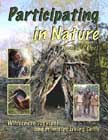
Go to Participating in Nature: Wilderness Survival and Primitive Living Skills
Go to Books and Videos by Thomas J. Elpel
Return to the Primitive Living Skills Page.


